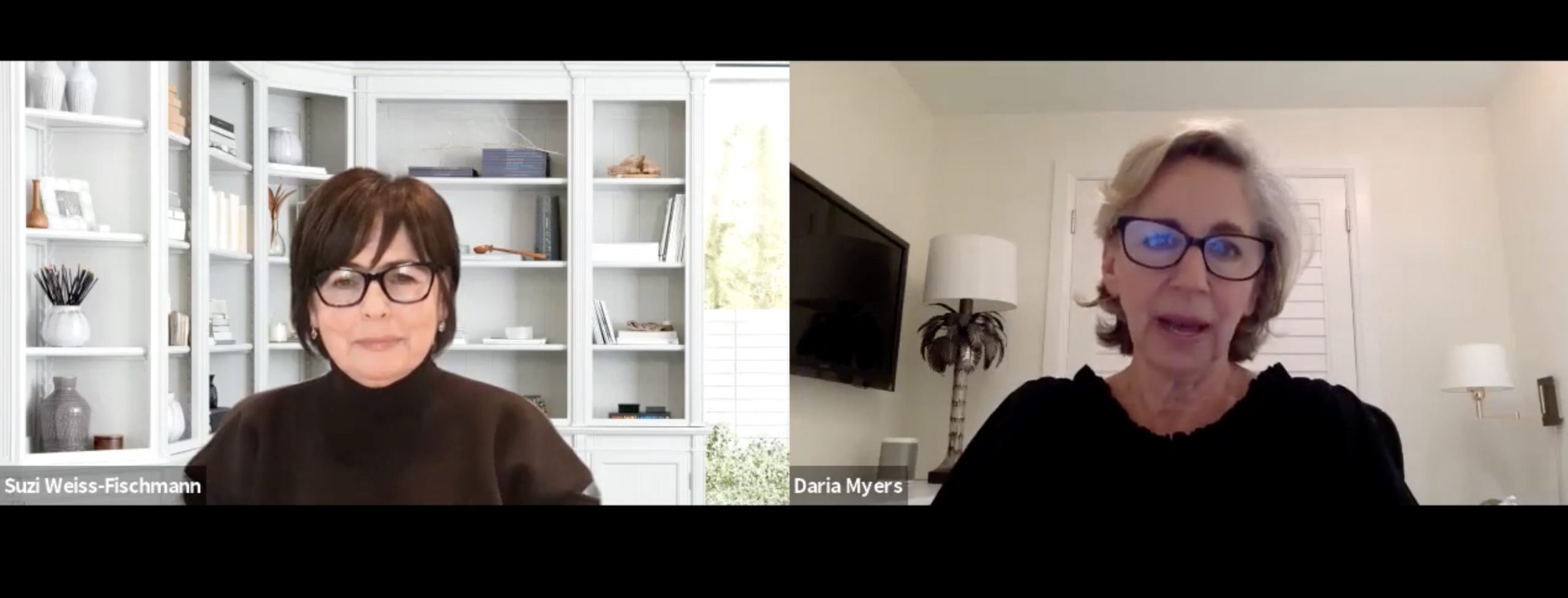As part of Women’s History Month, Hunter alumnae Suzi Weiss-Fischmann and Daria Myers returned to discuss their path to corporate success in a predominantly male business world. Hosted by Hunter@Home, “Women In Business” dissected the struggles, as well as the advantages, presented during their careers.
Despite different approaches to success, their advice for young women in business was the same – mentorship. Both acknowledged that women in the workforce are each other’s best allies and stressed the importance of the shared skills and experiences provided through intergenerational mentorship.
Known as the “ First Lady of Nails,” Wiess-Fischmann immigrated to the United States from Hungary in 1969. After graduating from Hunter, she had made the connection that the compound used in dentistry when making dentures was very similar to how acrylic nails were made. Alongside her brother-in-law, OPI grew to become a globally recognized nail brand and served as an opportunity for women to express themselves.
Opposite of the OPI experience, Daria Myers’s path involved navigating corporate America.

The New York native joined the Estée Lauder company where she worked as founder, manager, and developer for multiple brands and divisions within Estée Lauder, including pioneering the green beauty movement with Origins. Myers described Origins as a brand that “respected the consumer and the world,” adopting the ideal that beauty begins with your well-being.
Growing her family business within the private sector, Weiss-Fischmann reflected that the challenges she faced were likely very different than those Myers would have presumably faced within the corporate sector. But she still endured personal challenges, such as a fear of public speaking, as well as a lack of recognition as a serious business person.
“As I made decisions, and luckily they were good decisions, people took me seriously,” said Weiss-Fischmann, “I gained respect.”
Weiss-Fischmann also admitted to the advantage she had as a woman in her line of business–she was a consumer of her own product.
Decades before the inception of OPI, Mrs. Estée Lauder had built her company. As the company expanded through the years, it still preserved Lauder’s essences and remained a company where women were at the top.
Although she described the “c-suite” roles, such as CEO, CFO, COO and CIO as still being occupied by men, Myers said that there were powerful women at all of the key critical departments of Estée Lauder.
“They were trailblazers,” Myers said, “they paved the way and some of them took me under their wing.”
These were women who she said really made a difference, and who helped Myers secure her place within the company.
Myers recalled a friend and mentor, Jeanette Wagner, and how she had played a role in altering her path with Estée Lauder. When Myers had been appointed as head of Origins, she was given the title of general manager. Wagner had called her into her office and reprimanded her for accepting the position, telling Myers to march back to human resources and demand she be made president. Which luckily, she did.
Myers recalled Wagner’s words to her, “It’s not just for you, it’s for every woman who comes after you.”
From this, Myers had one piece of advice for aspiring female entrepreneurs, “As you climb up the ladder, reach down and lend a hand to others.”

